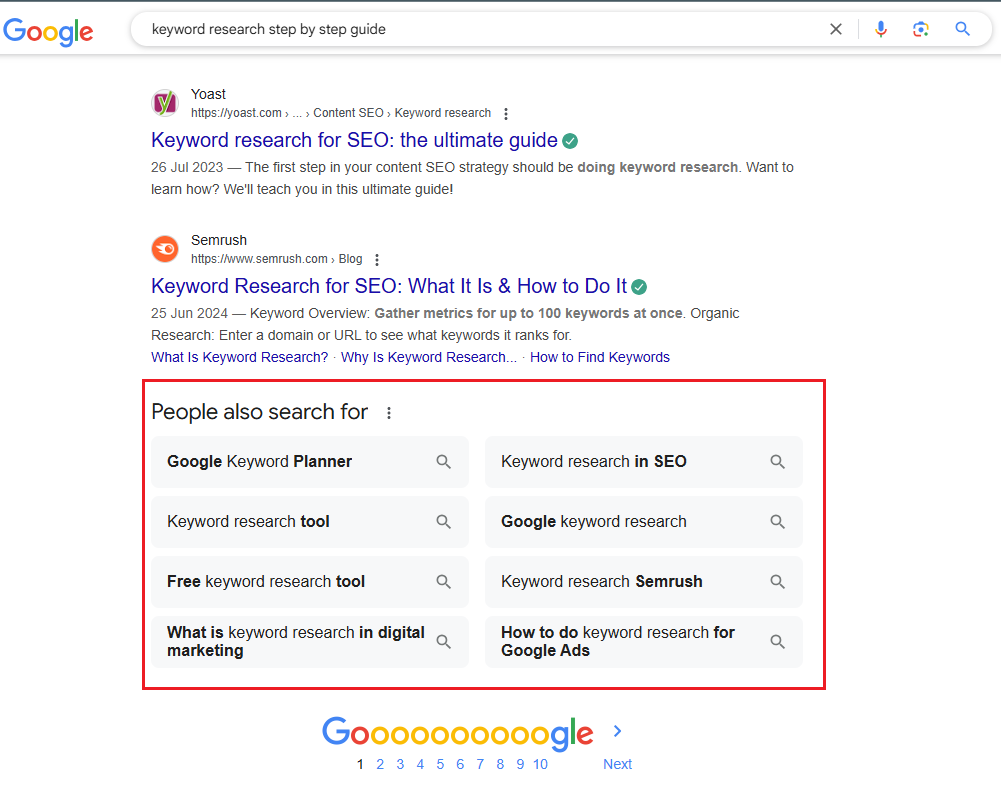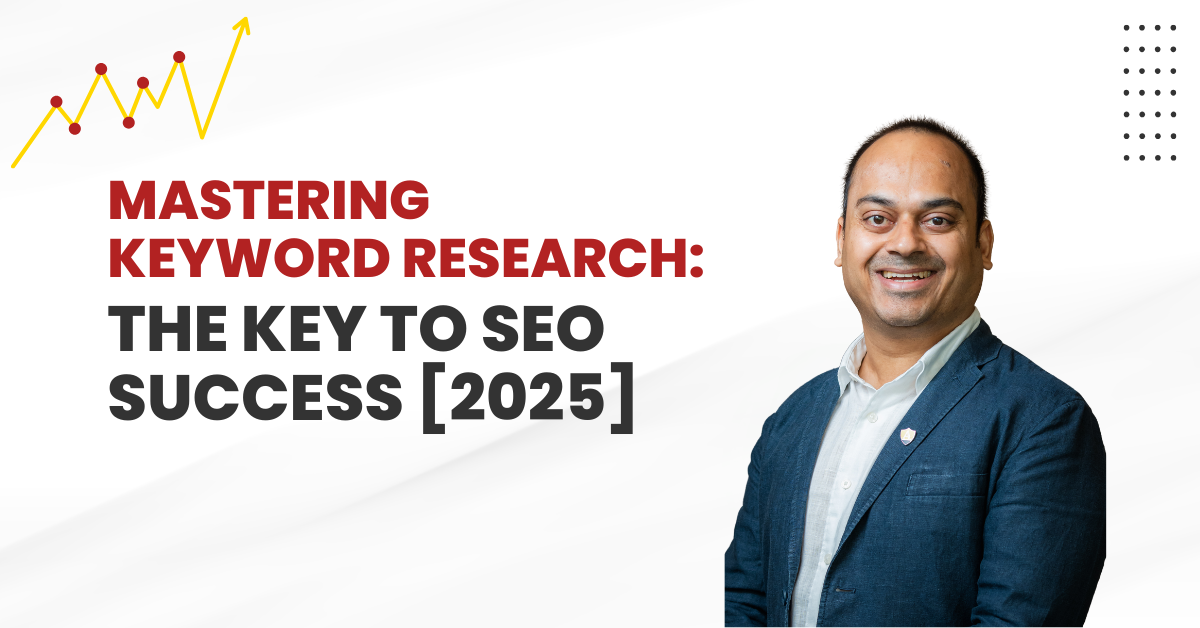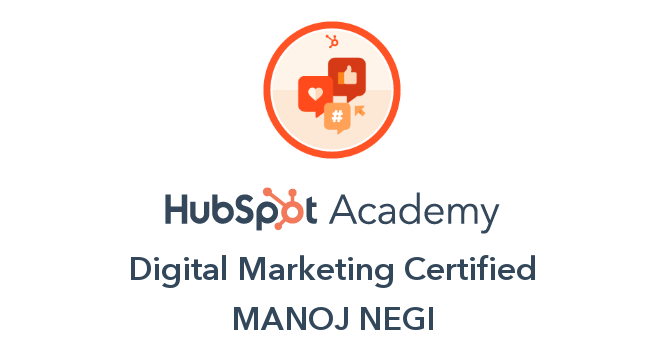Did you know that around 91% of web pages are virtually invisible on Google and get no organic traffic? The culprit? Poor keyword research.
After more than 14 years in the SEO game, I’ve learned that strategic keyword targeting is the key to transforming a website from obscurity to prominence.
The secret ingredient sets successful sites apart from those that fade into the background. Let’s uncover the power of the right keywords and elevate your online presence!
Keyword research is the very first step for effective SEO campaigns and strategies. This is not only about finding words; it is the process of getting to know the target group and audience. It is also about studying the competition and finding concepts your competitors have overlooked.
Why Keyword Research Is Crucial for SEO Success
Keyword research is more than finding the high search volume keywords for your products or services—it’s about truly understanding your audience and providing valuable content.
By knowing what your target audiences are searching for, you can align your content to meet their needs and deliver the expected information.
Done right, keyword research becomes the foundation of a successful SEO strategy because
- It boosts your website visibility on search engines
- It attracts high-quality organic traffic to your website
- It increases the chances of converting visitors into long-lasting customers
In essence, effective keyword research ensures your content speaks the language of your audience—and that’s the key to getting found online.
Unlock the power of keyword research done right, and get ready to supercharge your organic traffic by an astounding 300 to 500%! Get excited about the fantastic possibilities that lie ahead!
- Increase conversion rates by 50-80%
- Reduce customer acquisition costs
- Create sustainable search visibility
- Boost the organic traffic
This will significantly impact our approach as we explore professional keyword research techniques that experts in successful search engine optimization utilize.
Get ready to dive into some of the most common pitfalls to avoid on your journey to mastering search results!
We’re crafting a comprehensive plan to empower you to dominate the digital landscape. You’ll uncover the secrets to identifying relevant and high-value searches that draw in targeted traffic and cultivate a loyal customer base for your website. Let’s transform your business’s online presence together!
Flaws in Most Keyword Research Concepts That Are Considered Crucial
It’s not just businesses—even SEO pros often make these costly errors that hurt performance.
Relying on High-Volume Keywords
Many pursue high-volume keywords, but targeting unrealistic terms can be tricky. A keyword with 10,000 monthly searches may seem attractive. Yet, if well-established competitors dominate, your chances of ranking well are low. You should wait 12–18 months for results and traction.
Ignoring Search Intent
When selecting keywords, prioritizing numerical data over the intent behind a search can result in content that doesn’t resonate with the audience, leading to lower engagement levels.
Understanding the rationale behind search queries is essential for creating relevant and appealing content.
Targeting Only Short-Tail & High Competitive Keywords
Focusing on broad terms like “SEO” or “digital marketing” misses long-tail keywords that convert better. Targeting such short-tail keywords requires long-term plans and patience.
Overlooking SERP Features
Failing to analyze what already ranks—like featured snippets, videos, or “People also search for”—can result in targeting the wrong format or content type.

Assuming One Keyword = One Page
Trying to rank one page for only one keyword wastes SEO potential. Pages can rank for dozens or even hundreds of related keywords. It’s best to group the keywords and add all the potential and relevant keywords to one page. For example, these keywords can be targeted on a single page:
MBA courses
part-time MBA courses
one year MBA
MBA admissions
short mba courses
Master of Business Administration
MBA for Working Professionals
Accredited MBA Programs
MBA Admission
Not Considering Keyword Trends
Using outdated keywords or missing seasonal spikes can cause traffic loss and missed opportunities. Visit https://trends.google.com to explore and pick the suitable keywords for your website.
Ignoring Competitor Keyword Gaps
You could be missing valuable opportunities without understanding what your competitors rank for—and what you don’t. Below is an example of the wallpaper products website’s keyword gap analysis using the SEMrush tool:

Overvaluing Paid Tools Without Context
Tools show data, but without human judgment and context, incomplete insights can mislead decisions.
Skipping Keyword Clustering
Not grouping related keywords can lead to content cannibalization or diluted topical authority.
Mastering Keyword Research: From Search to Success
Understand Your Audience First
Before diving into tools and metrics, take a step back. Know who your target customers are, their challenges, and the language they naturally use when searching online. Understanding these factors helps you plan your keywords and content to win their interest.
Comprehensive Keyword Discovery
Start by spreading a wide net to discover potential keyword targets:
- Seed Keywords: Begin with 5-10 foundational words that represent the features of your business. For example, I offer guaranteed SEO success to small-to- big businesses, so my foundational words could be “SEO” and “digital marketing.”
- Competitor Analysis: One of the best methods of gathering competitors’ ranking keywords is using Ahrefs or SEMrush. Alternatively, you can use the Google Ads free Keywords Planner tool.
- Google’s Own Tools: Use Autocomplete, “People Also Ask,” and related searches to generate some ideas. Industry Forums: Uncover the customers’ original, most descriptive versions of the problems they have solved through the products or services acquired.
Intent Classification
Put keywords into logical classes according to their search intent:
- Informational: Which users need information (“How does SEO work?”)?
- Navigational: Who is looking for specific brands (“Manoj Negi’s SEO pricing”)?
- Commercial: Which clients are trying to get additional information on products (“best SEO agency in India“)?
- Transactional: Who are the users at the buying stage (“subscribe to Manoj Negi’s free SEO resources plan”)?
Competition Analysis
Determine the keyword’s competitiveness by:
- Keyword Difficulty Scores (Ahrefs, Moz)
- Domain Authority of ranking pages (you can use free sites such as PrePostSEO and SmallSEOTools)
- Content quality of top Google’s results
- Backlink profiles of competitors (use SEMrush’s Backlinks Analytics tool)
Discover Long-Tail Opportunities
Long-tail keywords are highly targeted—often three or more words—and tend to convert better with less competition. Here are a few examples:
“How to start a successful blog” – Approximately 1,000 searches per month
“Tips for effective content marketing” – Approximately 880 searches per month
“How to improve website SEO” – Approximately 1,200 searches per month
“Tips for writing engaging blog posts” – Approximately 720 searches per month
“How to monetize a blog effectively” – Approximately 590 searches per month
Opportunity Prioritization
Evaluate keywords on the following basis:
- Relevance to your business
- Estimated traffic potential
- Conversion likelihood
- Competition level
- Content creation feasibility
Content Mapping
Align keywords with:
- Content that can already be optimized
- New content opportunities
- Different stages of the buyer’s journey
Advanced Keyword Research Techniques
- Semantic Keyword Clustering Aim for a comprehensive list of all related words in a group that completes the relevant details of the topic.
- Seasonal Opportunity Identification Monitor the scraps to use them effectively as the search waves come and go.
- Local SEO Keyword Optimization Include city and neighborhood names in your keyword phrases and local trends in natural voice searches.
- Voice Search Optimization Develop conversational content matching natural language queries growing in voice search.
Tools for Effective Keyword Research
- Ahrefs (comprehensive Keyword and competitor analysis)
- SEMrush (in-depth keyword research and position tracking)
- Google Keyword Planner (free, but you must have a Google Ads account)
- AnswerThePublic (Discover question-based queries)
- Google Trends (Identify seasonal patterns)
Measuring and Refining Your Strategy
To optimize the effectiveness of your keywords, consider implementing the following strategies:
Rank Tracking: Regularly monitor your keyword rankings to understand their performance over time, allowing you to adjust your strategies based on fluctuations and the competitive landscape.
Traffic Analysis: Dive into your website traffic data to identify which keywords drive the most visitors. Analyzing this information helps you focus on high-performing terms and discover potential areas for improvement.
Conversion Monitoring: Track the conversion rates associated with specific keywords to determine which ones attract visitors and lead to desired actions, such as purchases or sign-ups. This information will help you refine your keyword strategy for a more significant ROI.
Content Gap Identification: Conduct thorough research to pinpoint gaps in your existing content. By identifying topics that are underrepresented or in high demand, you can create targeted content that captures more traffic and addresses audience needs effectively.
Conclusion
It takes more than just inserting random keywords to rank higher on Google. Your content should be explicit, genuinely helpful, and easy to understand—like explaining a concept to a friend.
Make sure it fully answers the user’s question, loads quickly, and works seamlessly on both desktop and mobile. Including your credentials and regularly updating your content shows authority and relevance.
Avoid keyword stuffing, as it can hit your website with Google algorithms, and aim for natural language that resonates. Earning backlinks from trusted sources helps build your site’s credibility and signals value to search engines.
As a premier SEO specialist in India with over 14 years of proven experience, I’ve helped numerous local and global brands dominate search rankings and grow online. My approach is deeply rooted in data-driven insights, white-hat strategies aligned with Google’s best practices, and a strong focus on results. I’ve generated over 200,000 quality leads, managed over $5 million in ad budgets, and consistently delivered measurable growth. My work is backed by industry-recognized certifications from Google, SEMrush, and HubSpot, reflecting my commitment to digital marketing excellence.
Let’s partner together if you’re ready to take your online presence to the next level, boost organic traffic, and secure lasting SEO success. It’s time to transform your website into a powerful asset that dominates search results and drives high ROI.






